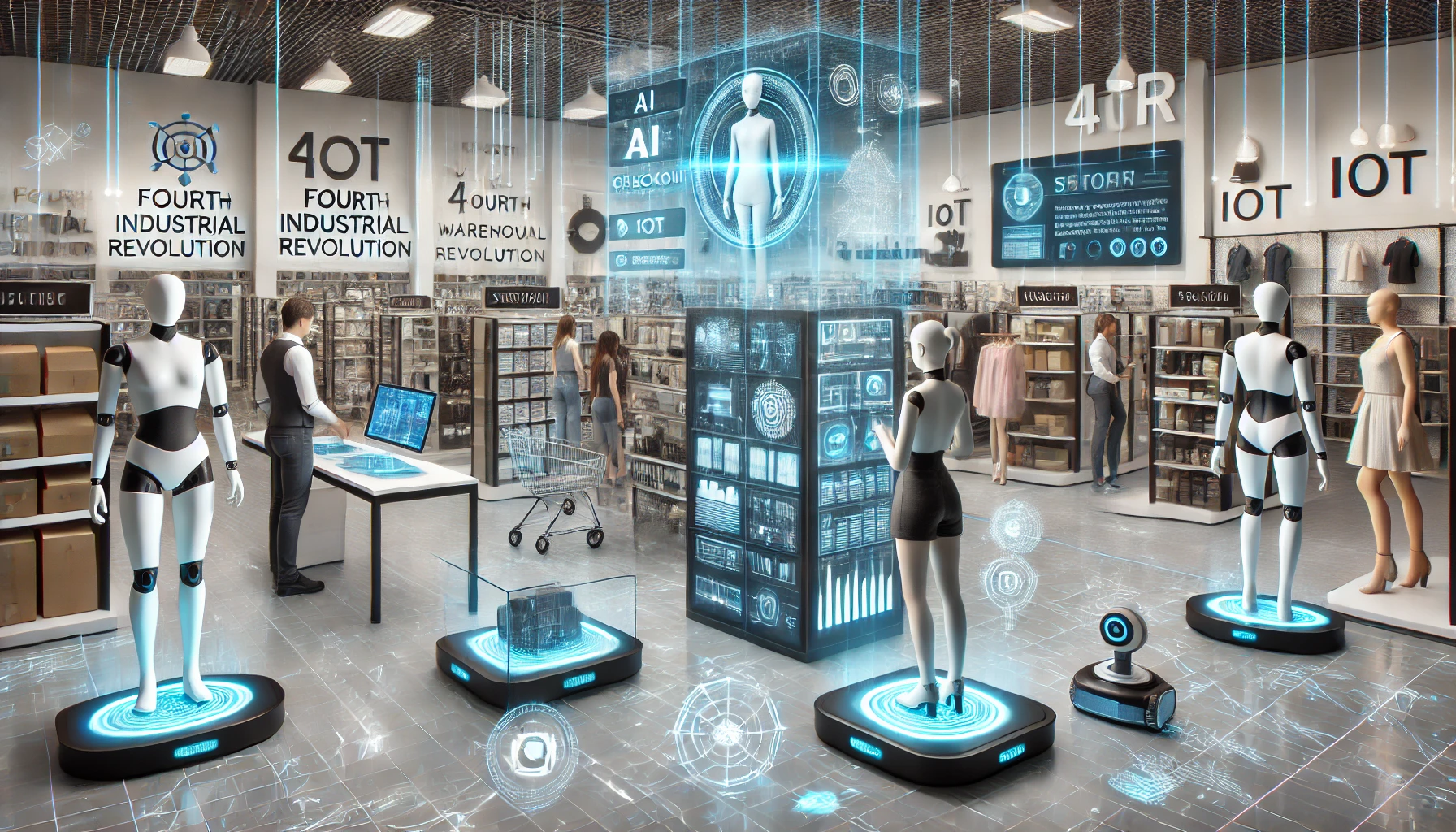The Fourth Industrial Revolution (4IR) is fundamentally reshaping the retail landscape, introducing groundbreaking opportunities while also posing significant challenges for businesses, workers, and brands. The integration of AI, IoT, big data, and automation has accelerated digital transformation, forcing the industry to rethink traditional business models.
This article explores how 4IR is driving change across retail businesses, the workforce, and brand strategies, along with key insights on how to navigate the evolving landscape.
1. Impact on Retail Businesses
Opportunities
- Omnichannel Integration: Retail 4.0 enables seamless online and offline experiences, with 63% of consumers using mobile devices for purchases. IoT-driven inventory management has cut stock-outs by 35%, enhancing operational efficiency.
- Data-Driven Decision-Making: AI-powered analytics predicts consumer behavior with 90% accuracy, optimizing pricing and personalizing marketing campaigns. Predictive demand forecasting reduces excess inventory costs by up to 20%.
- Operational Efficiency: Autonomous robots and IoT sensors cut warehouse labor costs by 25%, while 3D printing accelerates product development and reduces material waste by 15%.
Challenges
- Technical Complexity: Integrating AI, IoT, and cloud systems requires significant investment, with 42% of retailers citing data synchronization as a major challenge.
- Cybersecurity Risks: Retailers have experienced a 300% increase in data breaches since 2020 due to increased digital touchpoints and connected devices.
- Market Saturation: Smaller brands struggle to compete, as 76% of global retail revenue is now captured by companies leveraging AI and predictive analytics.
2. Impact on the Workforce
Opportunities
- Upskilling and New Roles: As 45% of retail jobs now require digital skills, new roles in AI oversight, robotics maintenance, and data analysis are emerging. Companies investing in reskilling programs have reported a 30% productivity boost.
- Flexible Work Models: Cloud-based tools have enabled 40% of retail employees to work in hybrid roles, including remote customer service and AI-assisted supply chain management.
Challenges
- Job Displacement: Automation is expected to replace 20–30% of traditional retail jobs by 2025, particularly in low-skilled roles like cashiers and warehouse workers.
- Skill Gaps: Only 34% of retail employees feel prepared for 4IR demands, widening the income gap as specialized digital roles command 50% higher wages.
3. Impact on Brands
Opportunities
- Hyper-Personalization: AI-driven recommendations boost conversion rates by 35%, while AR-powered virtual try-ons reduce product returns by 25%.
- Global Reach: Cloud computing and IoT allow brands to expand into emerging markets, with 59% of consumers preferring brands that offer digitally connected experiences.
- Sustainability and Trust: Blockchain-based transparency enhances consumer trust by 40%, with 60% of Gen Z consumers willing to pay more for ethically sourced products.
Challenges
- Consumer Distrust: 52% of shoppers avoid brands with poor data privacy practices, forcing companies to invest an average of $2.8 million annually in compliance.
- Rapid Obsolescence: Companies failing to adopt 4IR technologies experience 20% annual revenue declines, as seen with traditional retailers struggling to compete with tech-native disruptors.
Strategic Recommendations
For Businesses
- Invest in AI-powered supply chains and IoT-enabled smart stores to reduce operational costs by 15-30%.
- Partner with advisory boards specializing in digital transformation for strategic growth.
For Workers
- Prioritize upskilling in data analytics, AI integration, and IoT management to remain competitive in the evolving job market.
For Brands
- Implement blockchain-based traceability and AR-driven shopping experiences to increase customer loyalty by 40%.
Conclusion
The Fourth Industrial Revolution is redefining retail, creating an interconnected, data-driven ecosystem. While businesses gain efficiency and scalability, the workforce must navigate skill shifts, and brands must balance personalization with consumer trust.
Success in this new era depends on agility, technological investment, and ethical digital strategies—with 78% of thriving retailers attributing their growth to 4IR adoption.
4IR is not the future—it is the present, transforming commerce at unprecedented speed.
My advise?
Use technologies as a tool, invest in people. Finding a good balance between tech and human skills is crucial and is the secret for brands and retail evolution and success.


